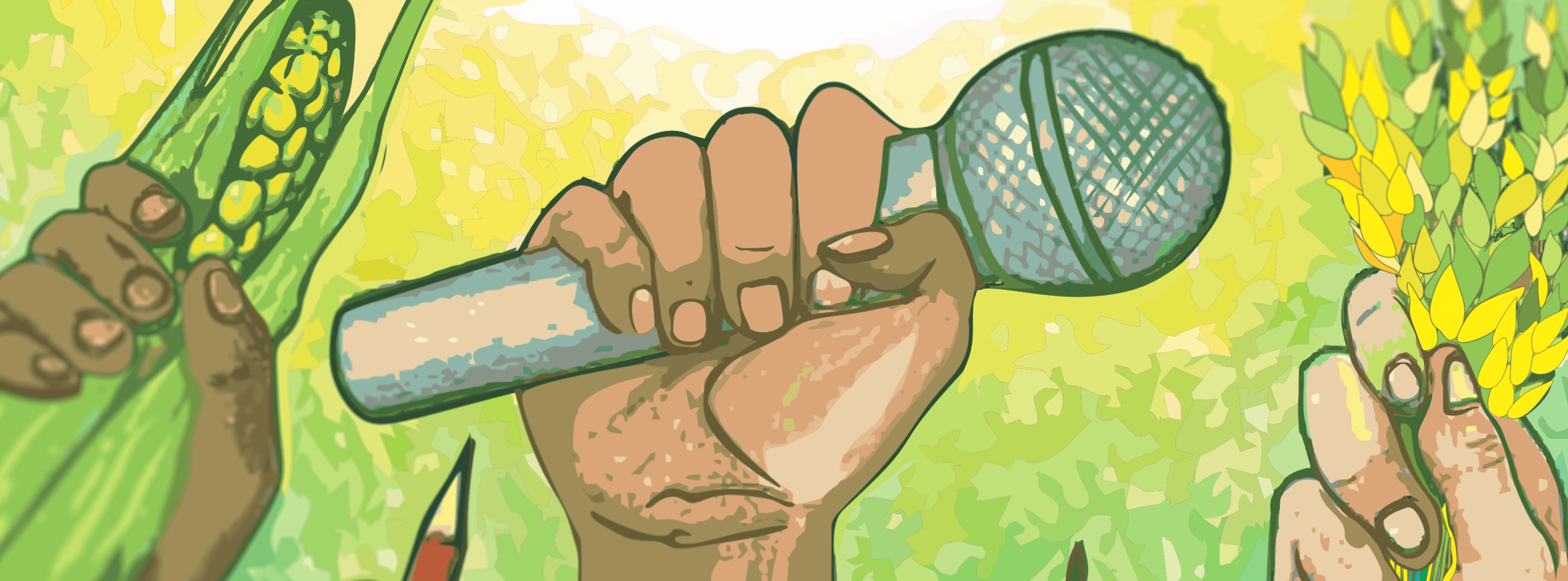This article was originally published by “Laborari,” the weekly information magazine of the ELB peasant union in the Basque Country (France).
Interviewee: Jean Thevenot, peasant farmer in Sauguis, organic vegetable seedling producer.
“You’re a farmer in Sauguis…
I’m Jean Thévenot, based in Sauguis, engaged in organic vegetable seedling production. After a first season in 2021 in an incubator with Trebatu, we established a GAEC (Groupement Agricole d’Exploitation en Commun) with a friend. Our seedlings are intended for professional market gardeners and individuals. As a secondary activity, we also engage in market gardening.
…and committed to La Via Campesina?
I’ve always been an activist and an engaged individual. I’ve known about Conf’ (Confédération Paysanne) for a long time, and when I was a student, I was involved with the Friends of Conf’. As soon as I started farming, I joined ELB (European Coordination Via Campesina). Since I’m interested in international issues, I joined the Conf’s international commission.
What is La Via Campesina?
Conf’ is part of an international movement called La Via Campesina, which was established in 1993. Initially, it was a gathering of peasant organizations from Europe and South America, aiming to defend peasants on an international scale. It was during the early days of globalization, free trade agreements, and commerce, and they saw that the challenges extended beyond the national level. The idea behind La Via Campesina is to do the same things as unions: defend the rights of peasants, the right to land, a decent income, protection against agro-industry, peasant agriculture, etc., but on an international level and thus influence the United Nations, the WTO, etc. Over time, the movement expanded, and organizations from Africa, North America, Asia joined la Via Campesina. Today, it has over 200 million members in more than 80 countries.
How is it organized?
There are three levels within La Via Campesina. The member organizations, which include unions, cooperatives, or associations, form the first level. Then, all these organizations are grouped by region, with nine regions in La Via Campesina, including the European region: ECVC (European Coordination Via Campesina). These nine regions together constitute La Via Campesina. Every four years, a conference is organized to decide the working priorities for the next four years. To give a concrete example, for the past 10 years, one of the priorities was the United Nations Declaration on the Rights of Peasants and Other People Working in Rural Areas (UNDROP). Thanks to the size of our movement and our influence, we were able to work directly with the United Nations, and this declaration was adopted at the UN General Assembly in New York in 2018. It was a significant victory, with an overwhelming majority of votes in favor, although some countries like the USA and Israel voted against, and countries like France abstained
“La Via Campesina has over 200 million members in more than 85 countries. Thanks to its influence, it successfully advocated for the United Nations Declaration on the Rights of Peasants at the UN.”
Jean Thevenot
When is the next conference?
The next conference will be held in Colombia in December. We expect 500 delegates from all over the world, and with interpreters, there will be more than 800 people. The two individuals who officially represent Conf’ at the national and international levels will attend: Laurence Marandola and Pierre Maison, respectively. I might also participate.
Have you been to Indonesia recently?
I am one of the European delegates for the youth articulation of La Via Campesina. In this capacity, we had a youth assembly in Indonesia in late May. It was an assembly to prepare what the youth will bring to Colombia. Two major priorities emerged: the importance of generational renewal, which involves access to land and means of production, and the issue of agroecology, with the idea of working on techniques through the proposal to establish peasant schools in each region.
Do you follow other issues?
I work on climate issues. That’s why I attended COP in Glasgow two years ago. At the European level, our main focus right now is the fight against the compensation logic. With this system, they will continue to pollute and destroy the environment and compensate for the destruction elsewhere. It’s a logic of green capitalism and is closely tied to finance. Firstly, it allows large companies to continue destroying the environment and polluting. Then, to compensate, they put a lot of money on the table, leading to speculation. Finally, peasants are being expelled from their lands in these projects. Ten years ago, we saw it happening in Africa, and now it’s happening in Europe. We are demanding real climate policies.
What do you take away from your involvement?
If I do all this, it’s because I grew up in Africa and Asia, and I consider myself a citizen of the world. If we solve problems here only to transfer them elsewhere, I find it pointless. I love the idea of working with peasants from all over the world. Moreover, I feel that today, most of the important decisions are made at the global level. It’s demanding, with multiple languages and online meetings, etc. But at the same time, what’s great is the opportunity to exchange with farmers from everywhere. It’s beautiful to come together and see everything we share.”
Credits:
Editor: “Zuentzat”
Publication Director: Beñat Bidegain

